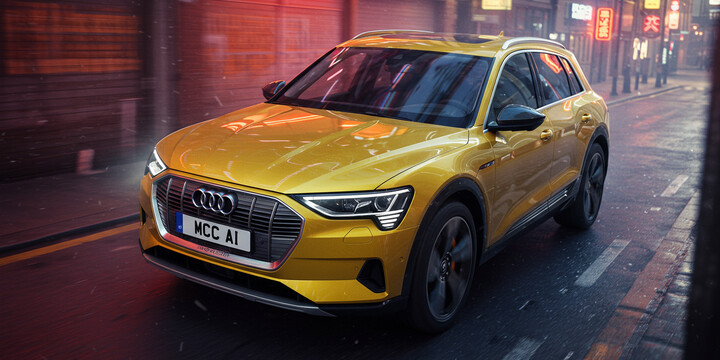AUDI E-TRON SUV (2018-22) 50 5DR SUV QUATTRO 0.0 ELECTRIC 71.2KWH 313 S LINE AUTO

Buyer's Guide & Data from our Checks
The AUDI E-TRON SUV (2018-22) 50 5DR SUV QUATTRO 0.0 ELECTRIC 71.2KWH 313 S LINE AUTO is a premium electric SUV that stands out in the UK market for its combination of luxury, practicality, and eco-friendliness. It offers a spacious interior and a stylish exterior design, making it well-suited for families and daily commuters seeking a comfortable yet environmentally conscious vehicle. This model is often used for everyday family driving, thanks to its impressive range, comfort, and advanced features.
According to mycarcheck.com data, there has been a notable level of interest in this model, with two lookups and a typical mileage of around 52,000 miles. The average private sale value is approximately £31,000, indicating a strong market for well-maintained used examples. Its relatively low number of previous owners (about half) and a steady annual mileage of 14,000 miles suggest this vehicle has been cared for and used regularly without excessive wear.
What sets this Audi apart is its all-electric powertrain, offering zero emissions and low running costs, combined with Audi’s renowned build quality and Quattro all-wheel drive for added stability and performance. It’s often compared favorably to rivals in the electric SUV segment for its driving experience, comfort, and stylish design, making it a popular choice among those wanting a luxury electric vehicle that balances cutting-edge features with everyday usability.
Key Findings
The following statistics are drawn from our checks of 1 different vehicles, run between January 5th 2023 and December 31st 2025. These real-world insights provide context for this vehicle's place in the market, as well as its typical usage.
2
Lookups
Lookups
0
Hidden Histories
Hidden Histories
55k
Average Mileage
Average Mileage
£31,000
Average Valuation
Average Valuation












